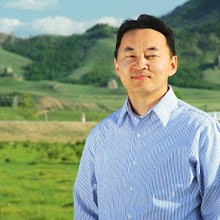In the bible Jesus healed 10 men with lepers. The unhealable ill of that time till death. But he cured them all. They all went happily but only one returned to Jesus and fell down on his face at his feet, giving him thank. Jesus said where are other nine and he was disappointed.
Why is gratitude important?
Let’s think about it. Well could we reflect upon our lives as individuals. We will soon discover much to prompt our personal gratitude.
Can we think about how grateful we are for our mother, father, teachers, and friends? All it starts from what they have done to your life. Thing of every detail and big and small things. Observe your feeling to come.
How does it relate to entrepreneurship?
The pursuit of opportunities is the essence of entrepreneurship. We define an opportunity as a future state that is both desirable and achievable. We also make a distinction among ideas, possibilities, and opportunities. The process of identifying and exploiting entrepreneurial opportunities begins with an idea that addresses some societal need. The entrepreneur must first check the idea for economic feasibility and, once satisfied that it is a realistic possibility, for the idea’s “fit” with his or her situation and plans. Only then can the entrepreneur be reasonably confident that this is the right opportunity to pursue at this time.
It is important to consider all three things below;
- Social Needs - Personal Satisfaction - Economic Feasibilities There are some premises related to entrepreneurship;
A personal definition of success should be multi-dimensional; “striking it rich” does not necessarily provide one with the meaning of life.
As entrepreneurs, we are fortunate to have choices. We must be aware of what the world around us offers and what it demands in exchange for its largesse.
Long-term success is not the result of a series of short-term, neatly planned decisions. Decisions are contingent on each preceding decision and on many factors beyond our control.
Each of us lives in a web of relationships. Our choices will shape our lives and the lives of people around us . . . and vice versa.
Also, it is very important to distinguish between idea and opportunity. How can you find out the difference?
An entrepreneur might get an idea for a new venture by seeing patterns that suggest a solution to a compelling market need—one that customers may not even have identified.
An entrepreneur turns an idea into an opportunity by crafting a business model that identifies a strategy for targeting a market segment with a solution that will attract customers, partners, investors, key employees, and other resources that will be needed to enter and gain traction in the market and create value for all stakeholders.
They check three distinct activities;
1. Sensing an unmet market need, or a new technology or capability 2. Resources available to the entrepreneur 3. Creating a product, service, or a hybrid product/service “solution” that can be delivered to a specific market to address a specific need while generating value for all stakeholders.
Henry Ford created cars when people were demanding faster horses. The market has need but they don’t know exactly what it is.
Many successful entrepreneurs all had personal, educational, and professional experience and networks that helped them spot the kernel of a good idea in emerging trends.
Second, these entrepreneurs recognized that having an idea was just the first step; they needed to shape it into a viable business opportunity by engaging with potential customers, advisers, and experts and by searching for information that could help them link their understanding of a compelling market need to a unique and compelling solution.
Third, these entrepreneurs narrowed their focus to find a market entry point that could be tested, refined, and then used as a platform for developing the business to its full potential.
Creating a team or surrounding yourself with people, who appreciate your lead or contribution makes your business much better and your life.
You are alone not going to go far. We demand from many people. Mentor, employer, teacher, parents, spouse, siblings and employee, clients and friends. We better appreciate and grateful for them. Also, the God the supreme being watches over you and reward you based on your hard work. We better be grateful for all of this.
Why is gratitude important?
Let’s think about it. Well could we reflect upon our lives as individuals. We will soon discover much to prompt our personal gratitude.
Can we think about how grateful we are for our mother, father, teachers, and friends? All it starts from what they have done to your life. Thing of every detail and big and small things. Observe your feeling to come.
How does it relate to entrepreneurship?
The pursuit of opportunities is the essence of entrepreneurship. We define an opportunity as a future state that is both desirable and achievable. We also make a distinction among ideas, possibilities, and opportunities. The process of identifying and exploiting entrepreneurial opportunities begins with an idea that addresses some societal need. The entrepreneur must first check the idea for economic feasibility and, once satisfied that it is a realistic possibility, for the idea’s “fit” with his or her situation and plans. Only then can the entrepreneur be reasonably confident that this is the right opportunity to pursue at this time.
It is important to consider all three things below;
- Social Needs - Personal Satisfaction - Economic Feasibilities There are some premises related to entrepreneurship;
A personal definition of success should be multi-dimensional; “striking it rich” does not necessarily provide one with the meaning of life.
As entrepreneurs, we are fortunate to have choices. We must be aware of what the world around us offers and what it demands in exchange for its largesse.
Long-term success is not the result of a series of short-term, neatly planned decisions. Decisions are contingent on each preceding decision and on many factors beyond our control.
Each of us lives in a web of relationships. Our choices will shape our lives and the lives of people around us . . . and vice versa.
Also, it is very important to distinguish between idea and opportunity. How can you find out the difference?
An entrepreneur might get an idea for a new venture by seeing patterns that suggest a solution to a compelling market need—one that customers may not even have identified.
An entrepreneur turns an idea into an opportunity by crafting a business model that identifies a strategy for targeting a market segment with a solution that will attract customers, partners, investors, key employees, and other resources that will be needed to enter and gain traction in the market and create value for all stakeholders.
They check three distinct activities;
1. Sensing an unmet market need, or a new technology or capability 2. Resources available to the entrepreneur 3. Creating a product, service, or a hybrid product/service “solution” that can be delivered to a specific market to address a specific need while generating value for all stakeholders.
Henry Ford created cars when people were demanding faster horses. The market has need but they don’t know exactly what it is.
Many successful entrepreneurs all had personal, educational, and professional experience and networks that helped them spot the kernel of a good idea in emerging trends.
Second, these entrepreneurs recognized that having an idea was just the first step; they needed to shape it into a viable business opportunity by engaging with potential customers, advisers, and experts and by searching for information that could help them link their understanding of a compelling market need to a unique and compelling solution.
Third, these entrepreneurs narrowed their focus to find a market entry point that could be tested, refined, and then used as a platform for developing the business to its full potential.
“Be Narrow: Focus on the smallest possible problem you could solve that would potentially be useful. Most companies start out trying to do too many things.”In early stage it is always useful to work for big companies to learn a gain experience. The research shows more than 70% of entrepreneurs got the idea from their previews job and built and improved the service or product they got familiarized. I am pretty sure they appreciate for the big companies.
Creating a team or surrounding yourself with people, who appreciate your lead or contribution makes your business much better and your life.
You are alone not going to go far. We demand from many people. Mentor, employer, teacher, parents, spouse, siblings and employee, clients and friends. We better appreciate and grateful for them. Also, the God the supreme being watches over you and reward you based on your hard work. We better be grateful for all of this.


Comments
Post a Comment